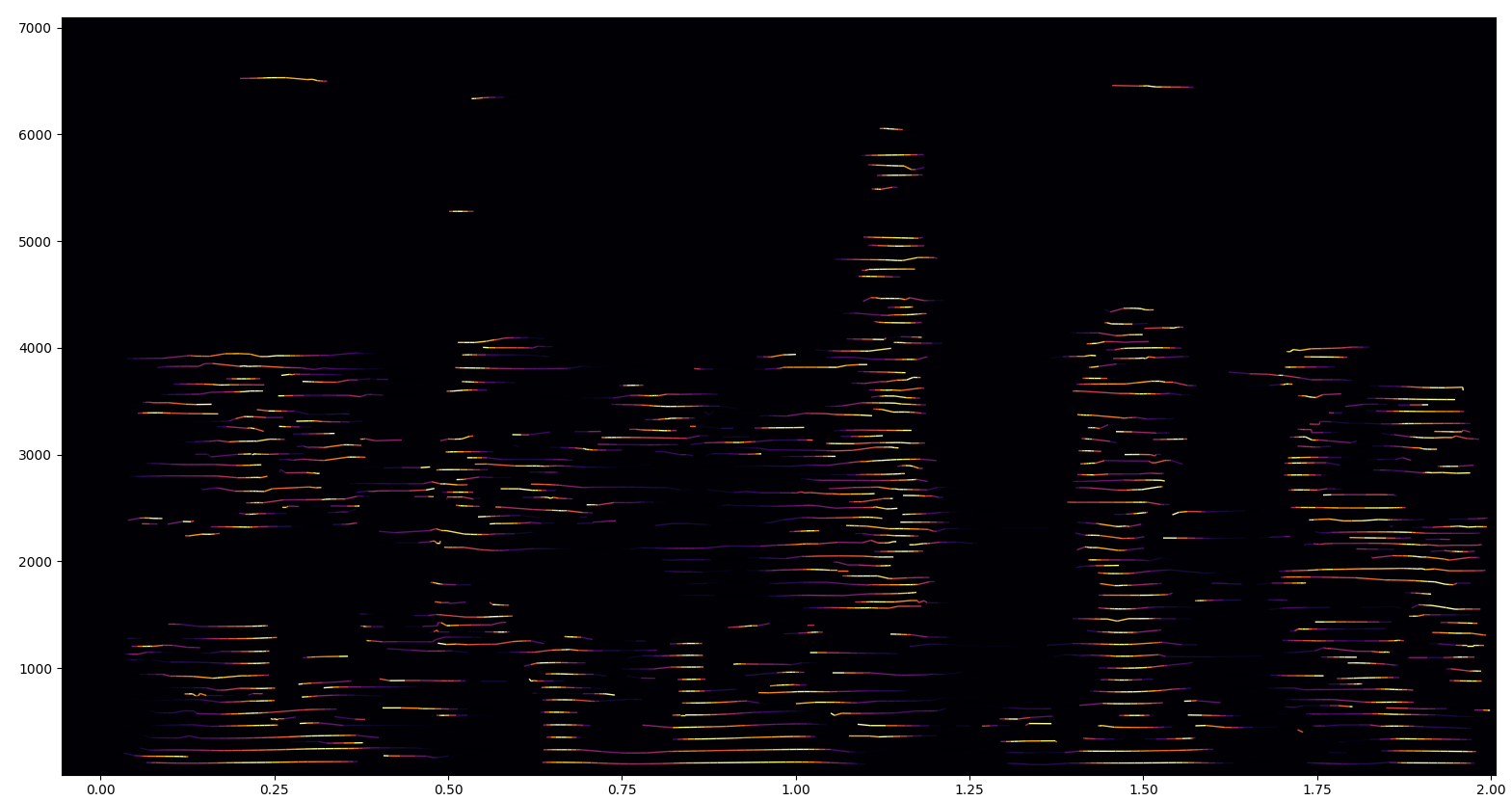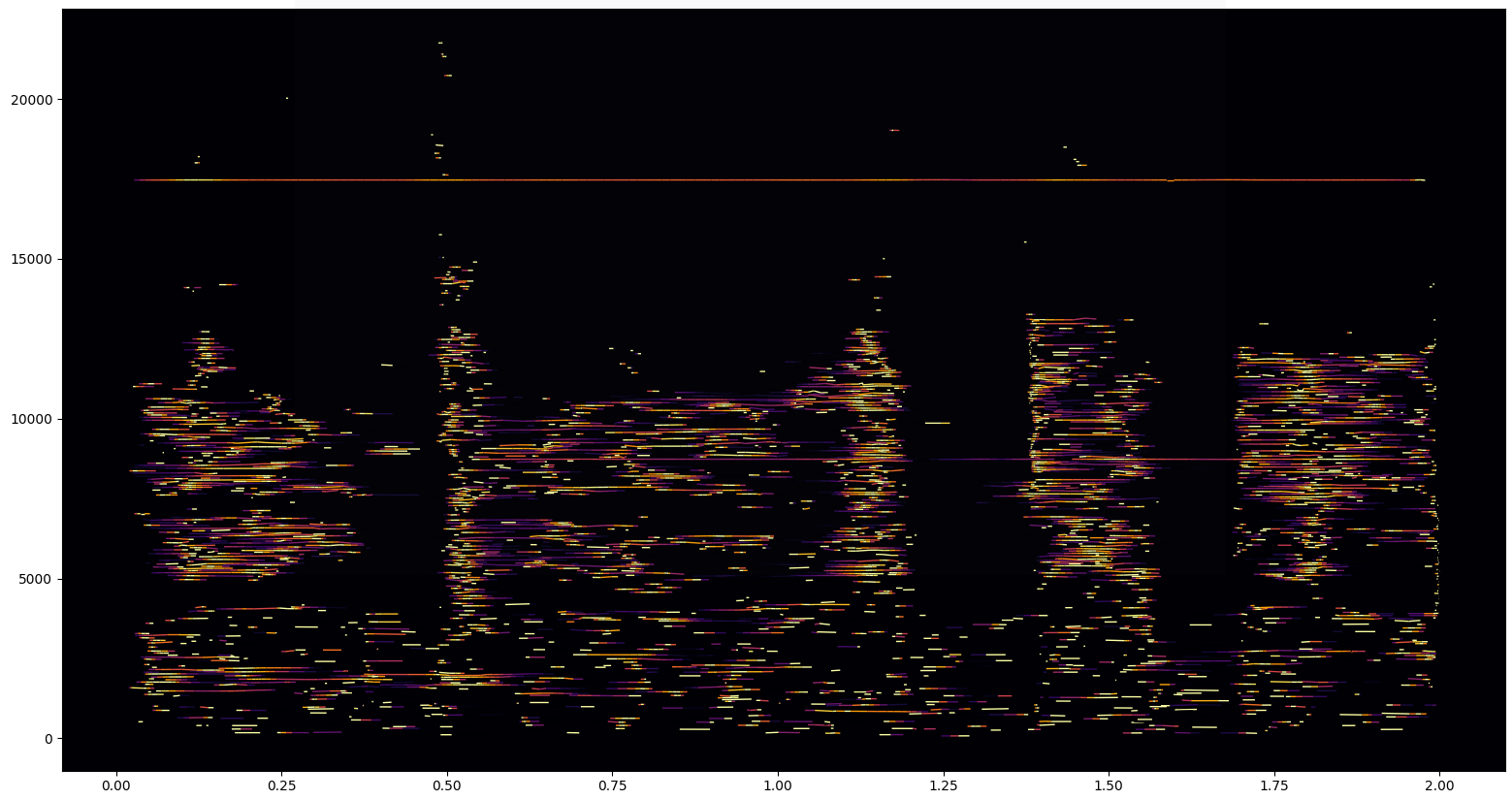loristrck
Welcome to the loristrck documentation!
loristrck is a wrapper for the C++ library Loris.
It is written in cython and targets python 3 (>= 3.8 at the moment).
Quick Introduction
import loristrck as lt
# Read a soundfile as a numpy array
samples, sr = lt.sndreadmono("voice.wav")
# Analyze the soundfile with a frequency resolution of 30 Hz and
# a window size of 40 Hz. A hoptime of 1/120 will result in 4x overlap
partials = lt.analyze(samples, sr, resolution=30, windowsize=40,
hoptime=1/120)
# partials is a python list of numpy arrays
# select a subset of most significant partials
selected, noise = lt.select(partials, mindur=0.02, maxfreq=12000,
minamp=-60, minbp=2)
# now resynthesize both parts separately
lt.partials_render(selected, outfile="selected.wav")
lt.partials_render(noise, outfile="residual.wav")
# Save the analysis as a .sdif file with RBEP format
lt.write_sdif(partials, "analysis.sdif")
selected.wav

residual.wav

Partials can be plotted:
# plot selected partials
lt.plot_partials(selected)
lt.plot_partials(noise)


Partials are 2D numpy arrays of shape (num. rows, 5), where each row represents a breakpoint and each breakpoint
consists of five values: time, frequency, amplitude, phase, bandwidth.
Since partials are numpy arrays, they can be easily modified in python. For example, it is possible to stretch the timing:
def stretch(partial, factor):
partial2 = partial.copy()
partial2[:,0] = partial[:,0]*factor
return partial2
stretched_partials = [stretch(partial, 20) for partial in selected]
lt.partials_render(selected, outfile="stretched.wav")

Installation
macOS
brew install fftw
pip install loristrck
Linux
For debian/ubuntu, the dependencies can be installed via apt:
sudo apt install libfftw3-dev libsndfile1-dev
pip install loristrck
Windows
pip install loristrck